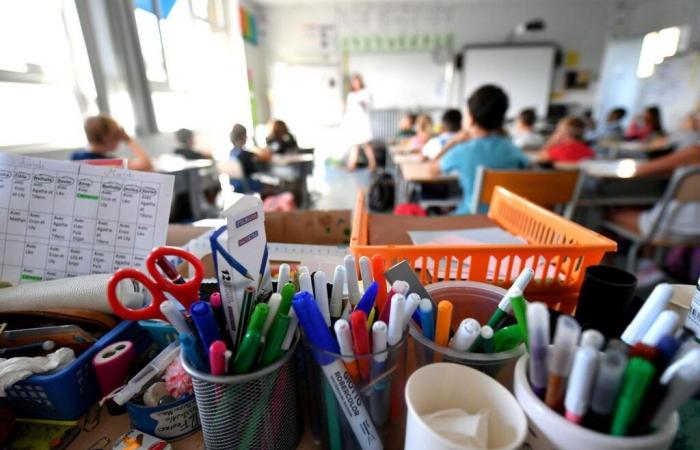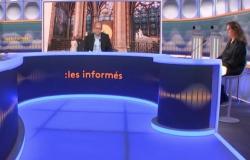Will the proposed education program for emotional, relational and sexual life at school see the light of day? Presented last March by the Higher Program Council (CSP), and initially planned for the start of the 2024 school year, it is still the subject of consultations. It must be presented to the Higher Education Council in December, before being published.
Requested in 2023 by Pap Ndiaye, then Minister of National Education and Youth, to make the three sexuality education sessions, provided for by the 2001 law, effective, this project must be the first official program of sexuality education applicable in public and private establishments under contract.
Themes adapted to age
This project which was the subject of a “ forty very large hearings”, according to Mark Sherringham, the president of the CSP, is structured around three axes: “Know yourself, live and grow with your body; meet others and build relationships with them, flourish there; find your place in society. Themes which are broken down by cycle, in order to adapt to the age of the students and their maturity.
Until the end of primary school, children follow a course of“education for emotional and relational life”. The word “sexuality” now only appears in middle and high school, in the latest version of the text that the Cross was able to consult. In March, he appeared in CM1.
In kindergarten and elementary school, the idea is to develop psychosocial skills, such as learning to name one's emotions, but also to fight “against stereotypes”, specifies the CSP. The students could thus “describe and exchange, based on reading albums or picture books, explaining role assignments and perceptible stereotypes”.
The notion of consent is discussed for the first time in CE2 and puberty from the CM1 class because the Academy of Medicine “notes a rejuvenation of the age of puberty”, says Mark Sherringham. In 5estudents learn to “differentiate sex, gender and sexual orientation”, and “understand how attraction and romantic feelings allow you to become aware of your orientation”. Then, in high school, “the reflective and critical dimension of the program is deepened by the study of more complex realities or situations”.
Divergence at the Ministry of National Education
Despite all the precautions displayed by the Superior Council of Programs, which consulted “ the Academy of Medicine, the teaching unions, but also the representatives of all spiritual families, from the Conference of Bishops of France to the Grand Orient, including very diverse associations, from SOS Education to Family Planning or defenders LGBT rights”, the project is controversial.
On Wednesday, November 27, the Minister for Academic Success, Alexandre Portier, declared that it was not “not acceptable” in the state. “I will personally commit to ensuring that gender theory does not find its place in our schools,” he added. The Minister of Education, Anne Genetet, nevertheless validated the draft program, promising that it would be very “progressive” et ” sequence “. She assured that she had taken “the time it took to reread the program very carefully”which according to her is “very complete”.
The two ministers would, however, remain “aligned”we say on rue de Grenelle. “This is why the ministry has made changes to the program which will be presented in mid-December to the Higher Council of Education”. The term “gender identity”which came up several times in the first version of the text, in particular, will not appear in the final version, specifies the minister's entourage.
Catholic family associations (AFC) also deplore, “the omnipresence of gender”.“The fight against gender stereotypes and role assignments is deployed repetitively throughout the school curriculum,” they assure in a letter addressed to the minister published in the JDD of November 24. Pascale Morinière, its president, also believes that this project “excludes parents from subjects that affect the privacy of family transmissions and denies their fundamental right to be able to express reservations”.
L’Apel in favor of the program
Same criticism from the Family Union (former Manif pour tous). “It is a program which is based on a neo-feminist and ideological reading of society and which calls into question sexual identity”points out Ludovine de La Rochère, its president. In an online petition, the union speaks of “ideological brainwashing from the age of 3” and program « woke ».
On the side of the teaching unions, on the other hand, there seems to be consensus on the project. The Snalc, listed on the right, “does not see any major problem in substance, declares Jean-Rémi Girard, its president. We are especially pleased that there is finally an official program that protects colleagues from certain minority parents who criticize them for personal choices. With this text, we can send them back to national education. »
At the free education parents’ association (Apel), we are even enthusiastic: “We are generally in favor of it, there would only be marginal modifications, explains the new president, Hélène Laubinat. You have to adapt to age but we believe that the earlier we address these issues, the better. In our establishments, we could even offer more than three sessions per year. »






